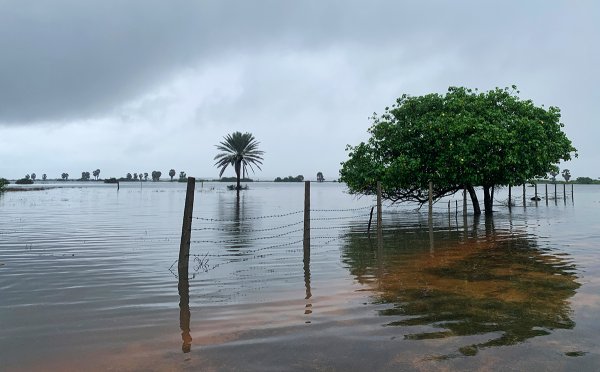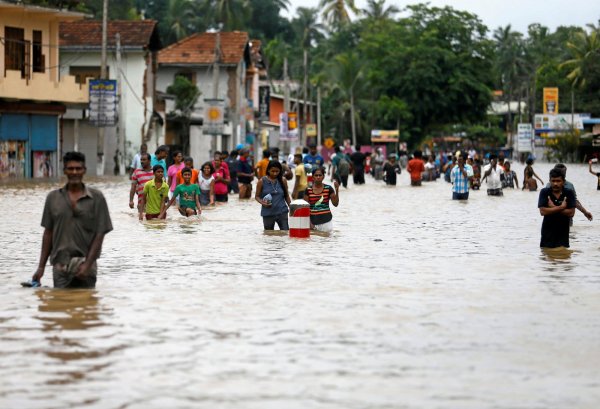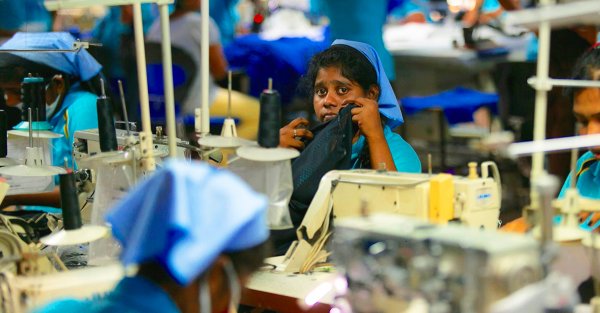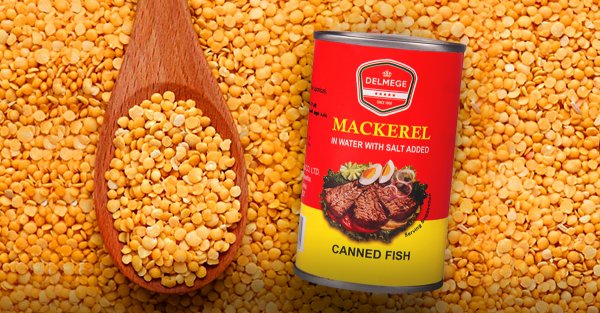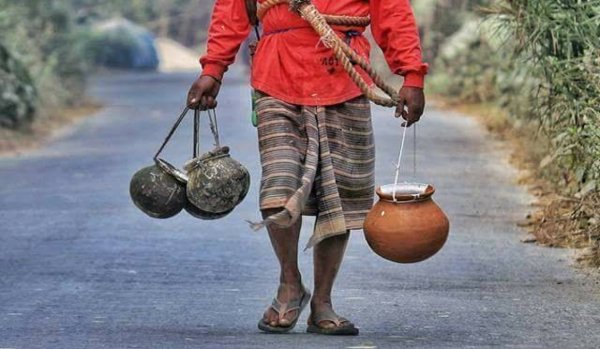
Prabhash Subasinghe is a busy man. Appointed Chairman of the Export Development Board (EDB) just a few months ago, he is now at the forefront of resuscitating the sector sorely affected by the COVID-19 pandemic.
Roar Media caught up with Subasinghe to find out what his plans are and how he expects Sri Lanka’s export sector to perform in the coming months.
Q: What is your assessment on how the export side of the economy will fare over the next 18 months?
Considering the unprecedented disruption to the global economy and to trade due to the COVID-19 pandemic, the Export Development Board has revised its 2020 exports forecast downwards by about 42% from USD 18.50 billion to USD 10.75 billion. As per the revised target, the EDB expects merchandise exports to contribute USD 7.53 billion, and service exports to make up for the remaining USD 3.21 billion.
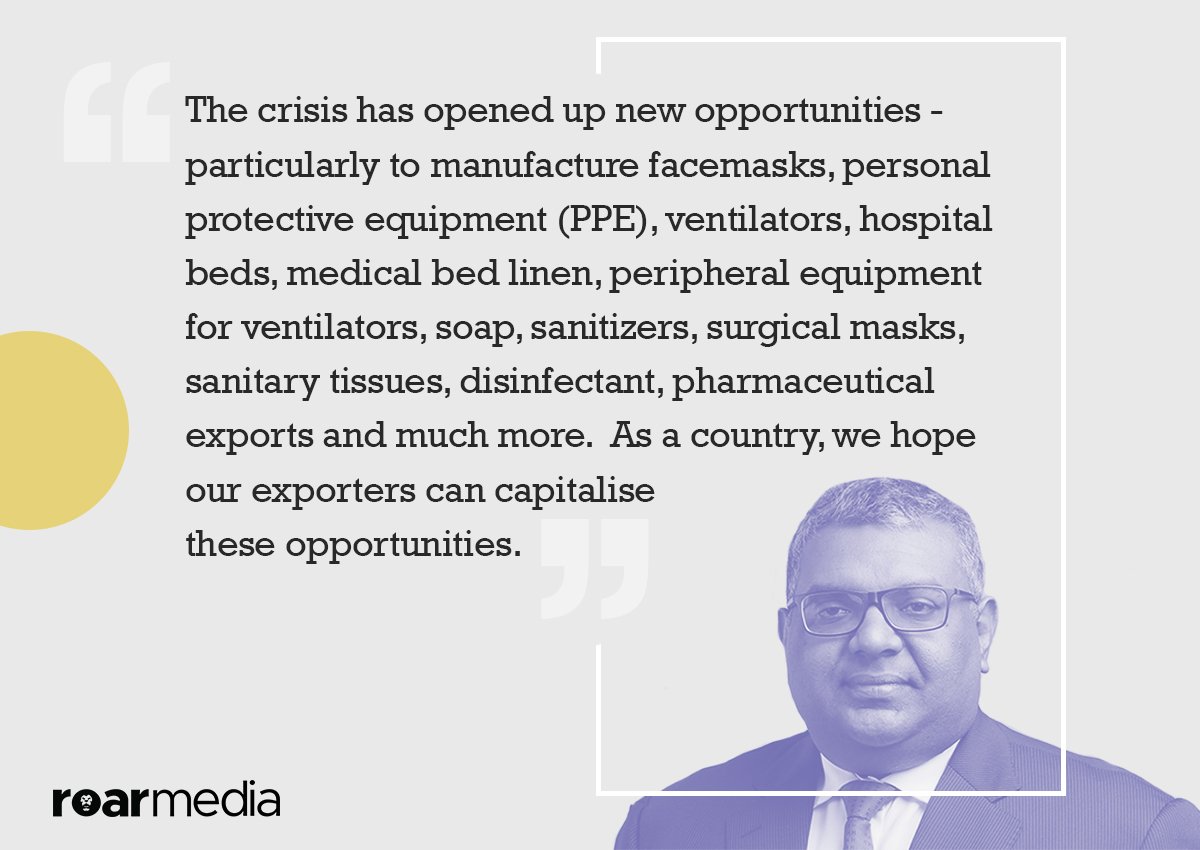
The Central Bank has set up a LKR 50 billion, six-month re-financing facility to support businesses affected by COVID-19 – this includes individual employees as well as the self-employed. It is important to note that both direct and indirect export-related businesses qualify for relief under this package. The Central Bank also reduced policy rates as it is important to enable the domestic financial market to provide relief to businesses and individuals affected by COVID-19. The Ministry of Finance has also issued directives on tax revisions during December 2019 to enhance the country’s economic activities and support business. We are also working with all foreign missions to help our exporters ensure their products reach the intended destinations, on time.
The crisis has opened up new opportunities – particularly to manufacture facemasks, personal protective equipment (PPE), ventilators, hospital beds, medical bed linen, peripheral equipment for ventilators, soap, sanitizers, surgical masks, sanitary tissues, disinfectant, pharmaceutical exports and much more. As a country, we hope our exporters can capitalise these opportunities.
If we can achieve the revised export targets for 2020, then 2021 can be a year where we focus on increasing the momentum [to cover lost ground]. The EDB stands ready to help exporters in various ways such as facilitating outwards and inward trade missions to focus destinations, organising local and international B2B events, gathering and disseminating market intelligence, and conducting market exposure programmes for potential exporters. We are also encouraging exporters to build shorter supply chains.
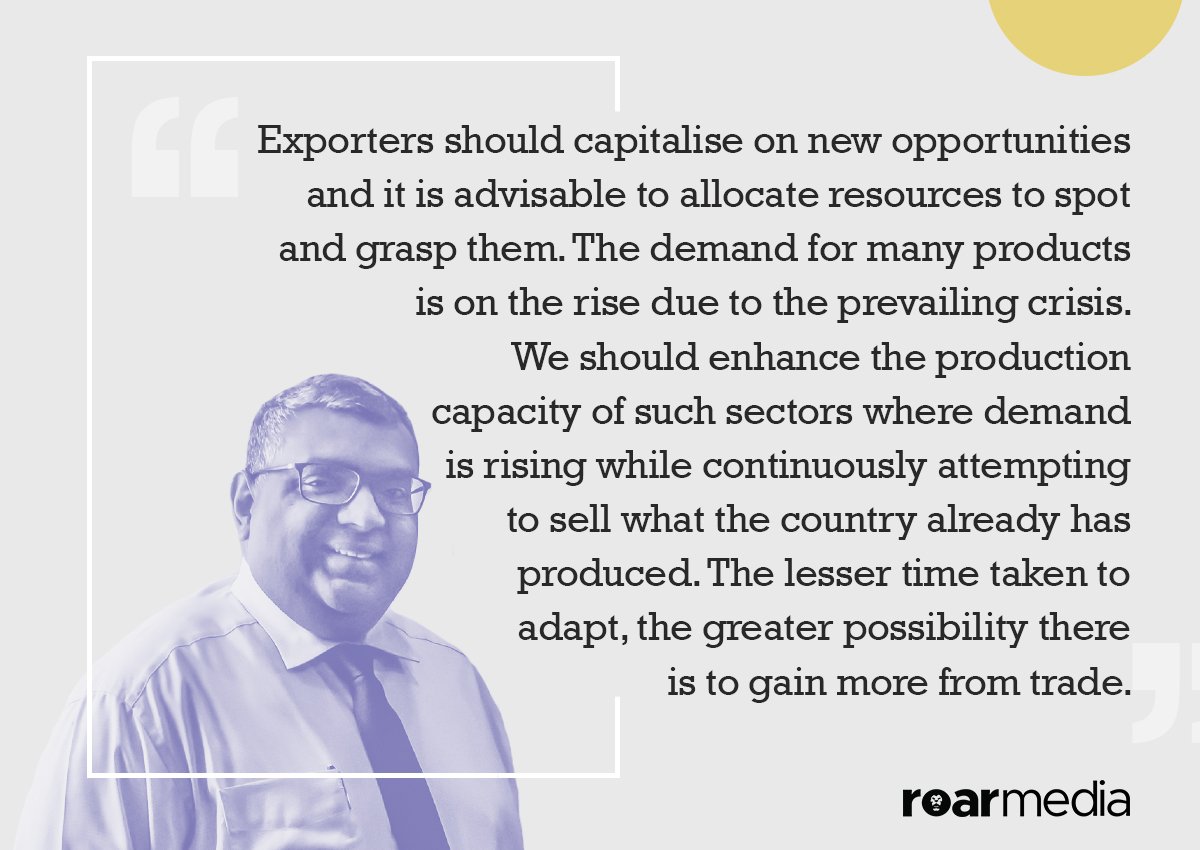
Q: The world expects the impact of COVID19 to linger for longer, especially in our key export markets. Do you think Sri Lankan exporters will be able to cope with this situation?
Exporters are without doubt the driving force of the economy. They are, however, currently operating at 20%-25% capacity and the impact of the disruption is evident. It will take some time to recover (as the entire world is in crisis mode). However, the EDB is making every effort to assist exporters get back on their feet and recommence operations whilst scouting for new opportunities to take advantage of. The EDB firmly believes that there is a great opportunity to establish strong FTAs with countries like China. The EU and USA are the biggest export markets for Sri Lanka at the moment. We believe that the EU may recover faster than the US, which will require more time.
Exporters should capitalise on new opportunities and it is advisable to allocate resources to spot and grasp them. The demand for many products is on the rise due to the prevailing crisis. We should enhance the production capacity of such sectors where demand is rising while continuously attempting to sell what the country already has produced. The lesser time taken to adapt, the greater possibility there is to gain more from trade.
Q: Is the EDB doing anything to assist exporters navigate the crisis?
Being the premier organisation for the promotion and development of exports, the EDB is giving its fullest support to guide and facilitate exporters to continue their businesses with the assistance of all the relevant agencies.
Directors of the EDB are on-call round the clock and have been working tirelessly to help exporters and resolve their issues. We have also established a help desk, and are intervening on behalf of exporters with all relevant authorities. We are constantly publishing updates along with any government directives on the EDB website. While the curfew was in effect, we helped facilitate the issue of curfew passes as and when necessary, while ensuring that our exporters continued to adhere to health guidelines. Even now, the EDB stands ready to connect exporters with foreign missions and ambassadors to find new opportunities.
It is of utmost importance that all exporters commence operations as early as possible while ensuring safety regulations are followed. We are sure that the world will recover and as for our nation, we are survivors. We will come out of this crisis with the help of our exporters who must now collaboratively start their businesses and help Sri Lanka in its time of need. It is time for us to come together and go forth into the world in search of new markets and new customers whilst strengthening our existing relationships and continuing to provide quality exports.
Q: Both Sri Lanka’s export markets and export basket haven’t changed a lot over the last few decades, though underlying costs and market conditions have. Do you think Sri Lanka should start paying attention to this more? Should we seriously start looking at diversifying our export revenue streams?
Sri Lanka has been over dependent on a few markets and has been catering to these markets for the last few decades. Sri Lankan companies that are facing difficulties should be willing to diversify into new markets and it is high time to make that change. Further, companies should look for new sourcing destinations in order to reduce the risk of disruption to production lines in future.
Prior to COVID -19, the EDB was focusing on identifying the measures that can be taken to diversify our export revenue streams. Various discussions and dialogues were conducted internally and with stakeholders in order to gather information. The EDB is keen to change the export basket and will pursue this even through the pandemic.
For this, we encourage exporters to re-visit their product portfolio and identify new potential products which can be viable in the short, medium, and long term.
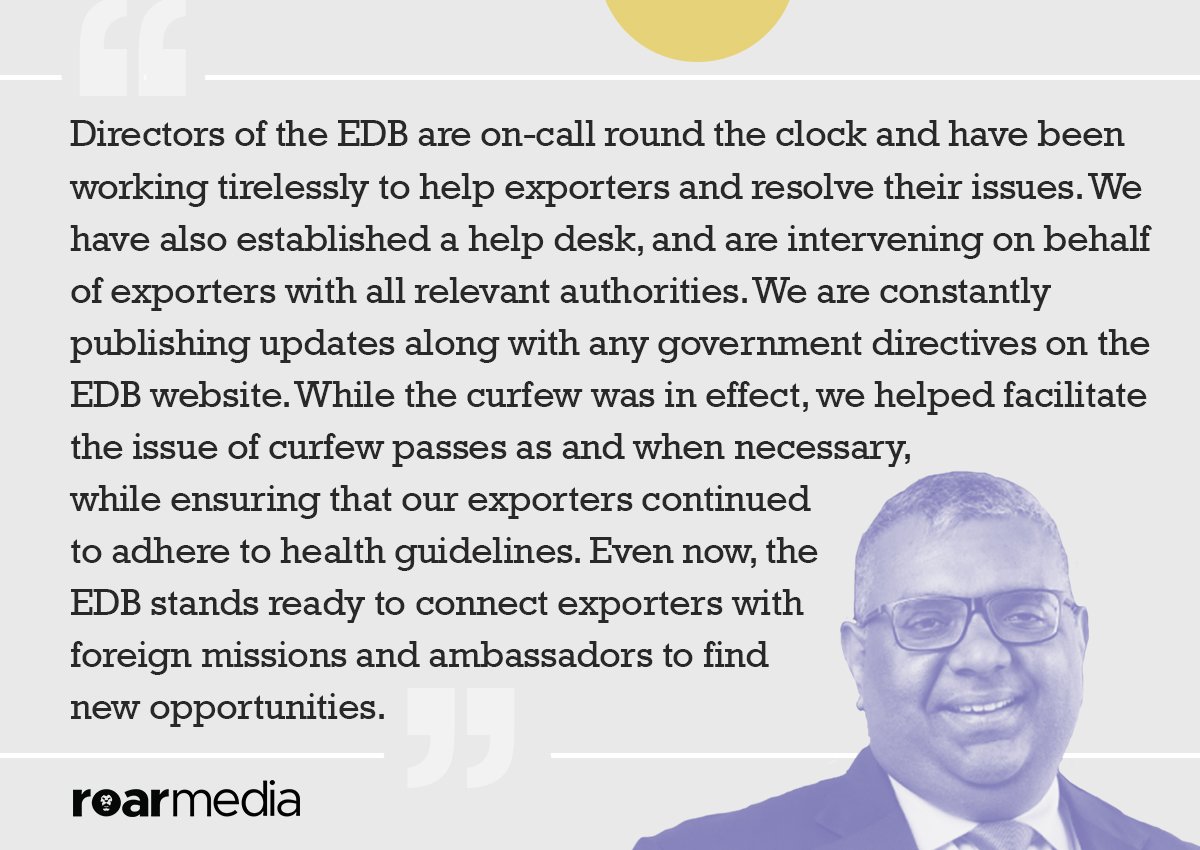
Q: What is your opinion on the depreciation of the rupee? On the one hand, it will be better for exports, but on the other, export industries which need to import raw materials from abroad are still going to be affected badly. What are your thoughts on this?
Sri Lanka’s rupee fell sharply in March with large liquidity injections being made to keep rates down. The rupee fell almost 200 to the US Dollar. Although depreciation of the rupee is generally good news for the export sector, the degree of benefit that can accrue to the sector depends on several factors and the nature of export products and services of the country.
The exchange rate is one of the most important tools that can be used in an export-led growth strategy. Depreciation of the local currency against the major international currencies, thereby changing relative prices of exports, can provide an immediate boost to profitability of the export sector by increasing the return in terms of rupees. Depreciation of the rupee also has a positive impact on price competitiveness as it enhances the ability of exporters to quote competitive prices in international markets and thereby increase the volume of exports.
However, depreciation of the currency will have an immediate and continuous effect on the rate of domestic inflation, unless matched by an improvement in domestic production. A lower exchange rate together with high inflation will lead to an increase in the prices of local and imported inputs, which in turn will increase the cost of production of exports. So while the depreciation of the rupee against the foreign currencies is welcome by the export sector, past experiences have shown that depreciation has offered mixed results.
*Responses have been edited for clarity and brevity.
